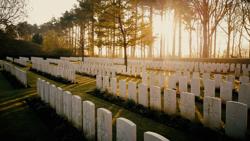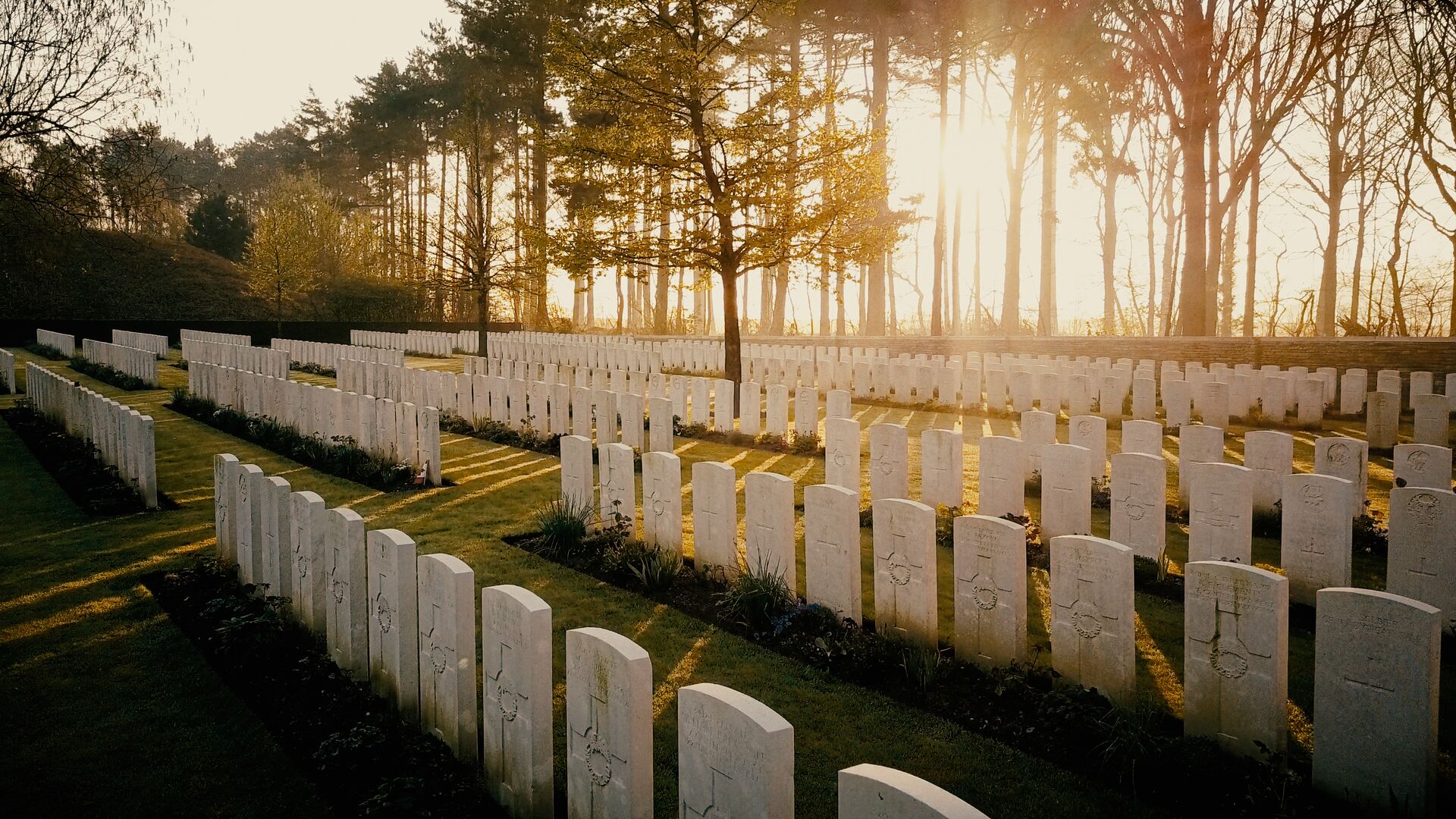John McCrae was born on November 30th, 1872 in Guelph, Ontario, Canada as the son of Scottish immigrants. Medicine, the army and poetry were family traditions. John went to school in Guelph and Toronto.
In 1898 John started working as a doctor as well as a lecturer in medicine, practicing both poetry and prose in his spare time to unwind. After his childhood sweetheart passed away, he remained a bachelor for the rest of his life. Between 1899 and 1901, John voluntarily served in the South African Boer War, albeit not as a doctor but in the Artillery. He left the army in 1904 as an officer, and went on to develop his medical career.
In October 1914 John voluntarily enlisted in the army and on April 14th 1915, his unit took over from the French, south of Poelkapelle. He became brigade surgeon with the Canadian Field Artillery and major of the Canadian Army Medical Corps. When on April 22nd, the Second Battle of Ypres began with a gas attack, McCrae was working at the dressing station by the canal bank in Boezinge, which is where John wrote the poem In Flanders Fields on May 3rd 1915. On June 1st, McCrae was transferred to Boulogne-sur-Mer in France. He later became ill there, and died on January 28th, 1918. John McCrae was buried in the municipal cemetery in Wilmereux. In 1966, a memorial for McCrae was inaugurated in the St. George’s Memorial Church in Ypres, and in 1992 the site at Essex Farm Cemetery (in Boezinge) became a protected architectural heritage site.
In Flanders Fields was written after his friend Alexis Helmer passed away, and was published in Punch on December 1915. It was deeply moving and the words ‘We shall not sleep, though poppies grow in Flanders fields’ inspired others to remember the soldiers’ sacrifice. Through the efforts of a few the Poppy has become an international symbol of remembrance and artificial poppies are worn at times of commemoration.


